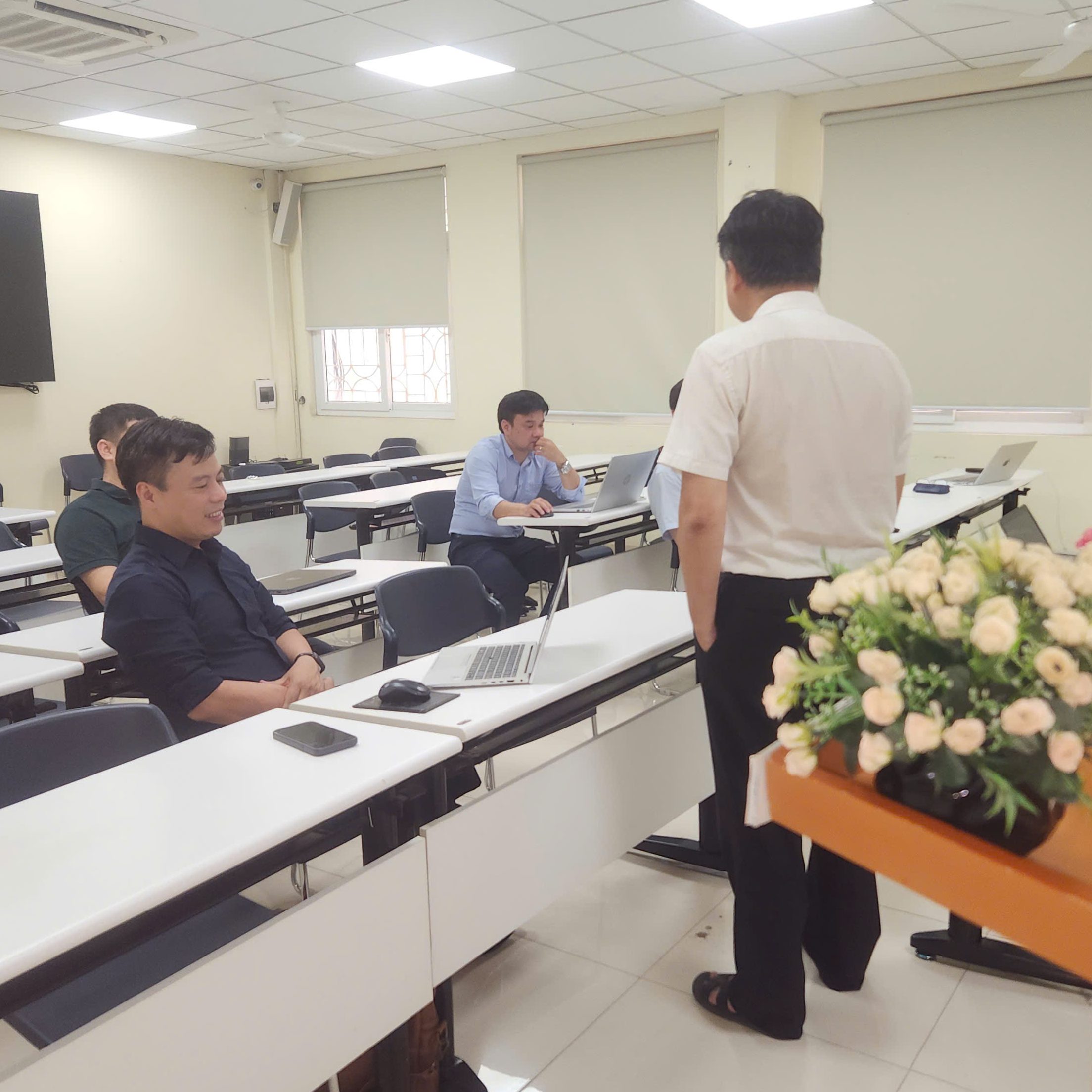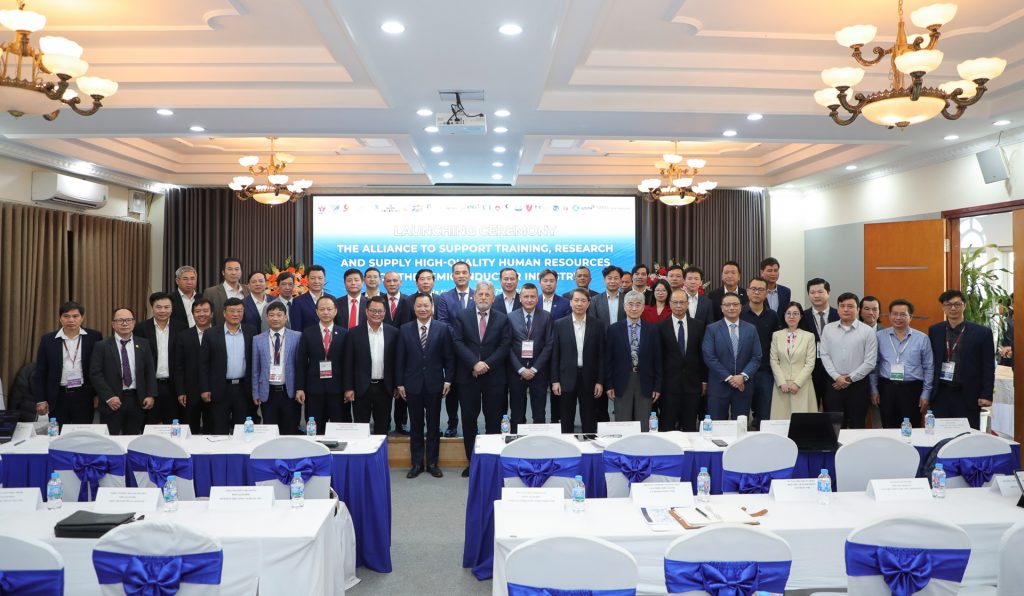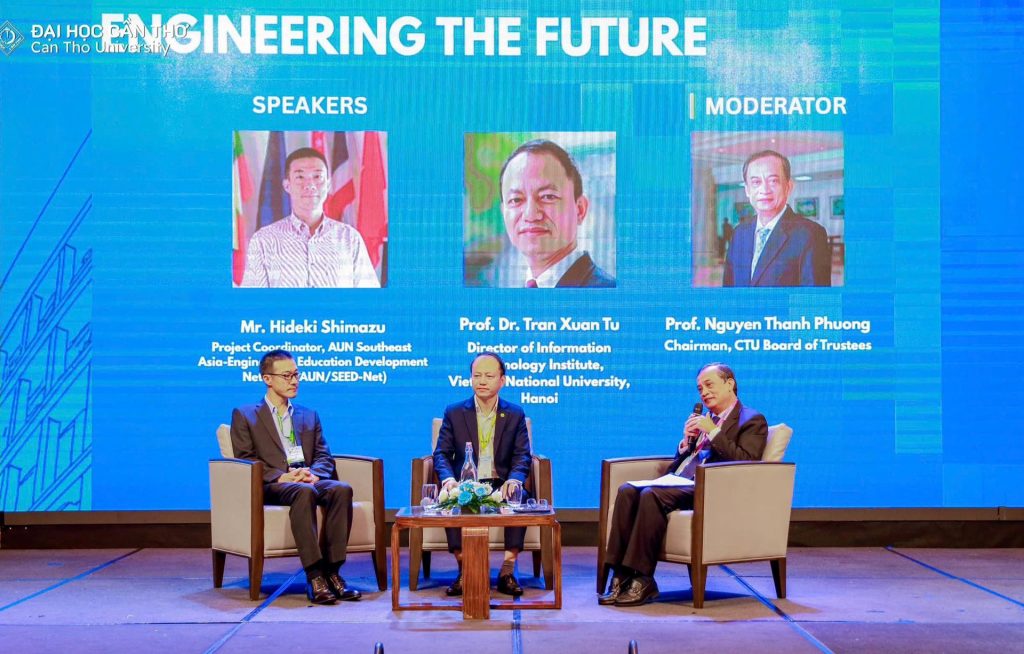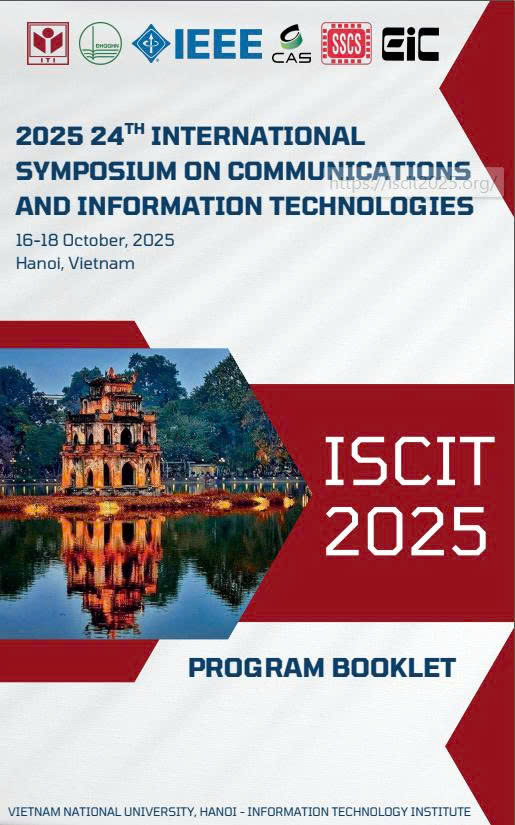In the context of globalization and the profound shift of the digital era, digital transformation has become an inevitable strategy for all organizations and businesses. To further clarify the theoretical foundations and methodological approaches in the digital transformation process, under the chairmanship of Dr. Le Quang Minh, Deputy Director of the Information Technology Institute, Vietnam National University (VNU), the thematic seminar titled “Discussion on Several Fundamental Methods of Digital Transformation” was held on July 30, 2025, attracting the attention of many researchers, technology experts, and business managers.
The presentation “Discussion on Fundamental Methods of Digital Transformation” by Dr. Tran Minh, Vice Rector of the School for Training and Fostering Information and Communication Management Officers (Ministry of Science and Technology), an experienced expert in IT and digital transformation in Vietnam, was built on the foundation of systems thinking and evolutionary approaches in organizations. The aim was to provide a fundamental, comprehensive, and strategic view of digital transformation – not just as a technological process but as an essential developmental trajectory for organizations operating in a constantly changing environment.
At the beginning of his presentation, the speaker posed a core issue: transformation is the shift from the current state to a better future state. From a systems perspective, everything evolves and changes – and digital transformation is no exception. Organizations, as systems, require driving forces for change. These forces stem from natural and social laws, environmental factors, and even internal conflicts, creating momentum for adaptation and survival.
The focal point of the presentation was the concept of “system evolution” – a process in which elements within a system coordinate to form new qualities that surpass the sum of the individual parts. This implies that, for sustainable development, organizations must understand internal relationships and their interactions with the environment. Evolution is not random; it is guided by a mindset of inheritance, refinement, and breakthrough. This allows organizations not only to survive but also to thrive along a strategic path.
A standout model introduced during the seminar was the “Nine-System Map”, which helps organizations position themselves in the present, past, and future; simultaneously posing questions about roles, relationships, and counter-relations within the overall structure. This model serves as an effective thinking tool to identify core issues and guide holistic development.
The seminar concluded with a core message: digital transformation is not merely the application of technology, but a comprehensive evolutionary process of the organization. It is a journey of capability building, model innovation, and rethinking objectives – all aiming to adapt and grow in a constantly evolving digital world.
Through the lens of systems thinking, strategic mindset, and evolutionary principles, participants were equipped with a solid theoretical foundation to approach and implement digital transformation in a structured, effective, and sustainable manner.
Some photos from the seminar:








